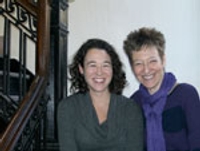In her judicious history of the development of in vitro fertilization (IVF), NBCC finalist Henig (The Monk in the Garden
) notes that many of the objections posed to IVF in the 1970s would later be used against human cloning, in particular the argument that artificial reproduction interfered in intimate processes best left to nature and that it was the first step on a "slippery slope" leading to genetic engineering and selective breeding. Ironically, because IVF was such a political hot potato, the U.S. government declined to fund research in the field, leaving it essentially unregulated except by the imperatives of a marketplace. Henig's narrative begins in the days when IVF was controversial, experimental science; she describes the work of maverick Columbia University researcher Landrum Shettles; of English doctors Robert Edwards and Patrick Steptoe, responsible for the birth of the first "test tube baby," Louise Brown, in 1978; of Howard and Georgeanna Jones, who made the East Virginia Medical School a pioneering IVF center; and of doctors and philosophers in the new field of bioethics who strove to get a grip on the moral implications of it all. Few of the more frightening predictions about IVF have come true, the author notes, but the rate of birth defects in IVF babies is much higher than in normal conceptions. We don't know where reproductive technology ultimately will take society, Henig concludes, but it's likely that "we will adapt to new discoveries the way we have so often adapted." Her level-headed book provides a welcome context for the current debate over cloning. (Feb. 6)



